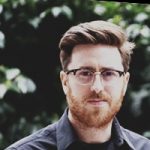
Curtis Bedwell

Curtis Bedwell
Curtis is an experienced policy analyst and advisor who is committed to supporting First Nations in advancing transformative change within the Canadian justice system and the strengthening of Indigenous justice systems in BC.
Curtis has several years experience working directly with First Nations and First Nations organizations as a consultant and employee. Curtis holds a B.A. (Honours) in political science from Simon Fraser University, and a M.A. in public policy and public administration from Concordia University.
Curtis is honoured to work on the unceded territories of the Skwxwú7mesh Úxwumixw (Squamish Nation), xʷməθkʷəy̓əm (Musqueam), and səl̓ílwətaʔɬ (Tsleil-Waututh Nation), in addition to the Syilx Nation (Westbank First Nation).
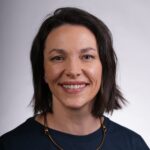
Amanda Carling

Amanda Carling
Amanda Carling (she/her) is Métis from Red River, Treaty One. She is a grateful guest on the unceded territory of the Syilx Okanagan peoples with her partner Jesse, son Sam (5) and daughter Joy (2).
Amanda’s undergraduate studies were in criminology at the University of Manitoba (BA, 2007). Thereafter she joined the JET Programme and spent two years teaching high school English in Tosu, Japan. Amanda attended law school at the University of Toronto (JD, 2012) and articled with Innocence Canada. She was called to the Ontario Bar in 2013. Amanda served as president of the board for Aboriginal Legal Services in Toronto from 2014 until 2020. In 2014, Amanda launched Innocence Canada’s National Legal Education Program to forward the organization’s mandate to prevent wrongful convictions. The same year Amanda was appointed by the Attorney General for Ontario to the Debwewin Jury Implementation Committee. In 2016 she returned to the University of Toronto, Faculty of Law as Manager of the Indigenous Initiatives Office, and Adjunct Faculty, where she oversaw the institution’s efforts related to the Truth and Reconciliation Commission’s (TRC) Calls to Action and taught a course on wrongful convictions. Amanda’s work in legal education was recognized by Precedent Magazine in 2020. Amanda has served on the Canada Committee of Human Rights Watch since 2016.
Amanda was called to the Bar of British Columbia in May 2022. She first joined the BC First Nations Justice Council in 2022 as a Senior Policy Lawyer. Within a few months, as the capacity of the organization grew, Amanda accepted the role of Chief Executive Officer. She has since led the organization in a restructure, creating a 7-Bundle system to best tackle the 25 Strategies and 43 lines of action that the organization is responsible for.
What compels Amanda to do this work?
Amanda has been outraged with the overrepresentation of Indigenous people in the colonial justice system for as long as she can remember; in high school, she thought that the best way to combat injustice was to become a lawyer. However, while studying Canadian law, Amanda came to realize that lawyers weren’t only complicit in the genocide against Indigenous people – they facilitated it.
It was clear that Canada’s approach to justice required transformation. On one hand, it’s about making the colonial legal system less racist, less painful, and more representative. But even then, the colonial system does not work for Indigenous people and no amount of legislative reform, training or policy will change that. That is why Amanda has dedicated this chapter of her life to the Justice Council’s two-track mandate: to ameliorate the colonial system as it currently stands and to restore self-determination and advance sovereignty over justice for BC’s First Nations.
Amanda is proud to be leading the organization that is blazing a new trail for all those who have and continue to be victimized by Canada’s racist laws and institutions.

Courtney Daws

Courtney Daws
Courtney was born and raised on the unceded territories of the xʷməθkʷəy̓əm (Musqueam), Skwxwú7mesh Úxwumixw (Squamish), and səl̓ílwətaʔɬ (Tsleil-Waututh). She is an ally, practicing lawyer, and strategic advisor with almost 20 years of experience working with and supporting First Nations across the country on legal, policy, governance, negotiation and political matters related to advancing self-determination and transformative change.
Prior to joining the BC First Nations Justice Council as the Provincial Director for Legal Aid in 2023, and now the Director of Indigenous Justice Centre Governance and Legal Aid Transition. Courtney has held senior positions in the legal, political, consulting and social sectors, working for Indigenous peoples.
As the Director of Operations/Chief of Staff for five years at the BC Assembly of First Nations (2010-2015), and at the Assembly of First Nations – Yukon Region (2022-2023), Courtney had the opportunity to work with Indigenous communities in BC and the Yukon on strategic policy, governance and advocacy work – advancing First Nations’ positions in a number of areas including justice, governance, education, environment and climate change, Aboriginal rights and title, treaty rights, fisheries, child welfare and economic development.
As the Vice President, Governance and Policy, at Castlemain, Courtney led a large number of policy, program and governance review and development projects, as well as engagement projects with Indigenous communities and citizens over the course of six years (2016-2022).
Courtney has also practiced law at a boutique Aboriginal law firm where her work included Aboriginal rights and title litigation, modern-treaty negotiation, and leading community meetings with self-governing First Nations and incorporating that feedback to develop draft policies and procedures.
Courtney has a Bachelor of Arts (BA) in Sociology and a Bachelor of Laws (LLB), with a focus on Aboriginal law, both from the University of British Columbia. Courtney is a practicing member of the Law Society of British Columbia (called in 2005) and was the recipient of the 2020 YWCA Women of Distinction Award in the category of Reconciliation – Ally.
Cedar W. Dodd
Cedar W. Dodd
Cedar (he/him) is a lawyer with a strong background in litigation, project management and corporate matters. Cedar is a member of the Łı́ı́dlı̨ı̨ Kų́ę́ First Nation from Fort Simpson, Northwest Territories. Cedar holds a Diploma in Mechanical Engineering from the British Columbia Institute of Technology, a Diploma in Aboriginal Studies (with distinction) and Juris Doctor from the University of Victoria.
After graduating from BCIT Cedar worked in Vancouver’s hi-tech sector for companies such as Ballard Power Systems, SNC-Lavalin and Cummins-Westport. Cedar focused his engineering career on green technology and the development of emerging fuel systems. Upon graduation from UVIC Cedar formed Cedar W. Dodd Law Corporation, a boutique law firm with a focus on litigation. In his capacity as a lawyer Cedar has represented hundreds of clients in both the Provincial and Supreme Courts of British Columbia.
Cedar was born in Vernon, British Columbia and lived in Enderby until the age of 7 when his family moved to Vancouver Island. Cedar has three children, two daughters and one son. When not spending time with his family Cedar can be found either cooking, hunting, working on classic vehicles or exploring the outdoors.
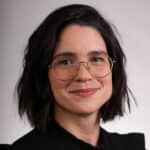
Cassandra Gouschuk

Cassandra Gouschuk
Cassandra Gouschuk (She/Her) is the Provincial Manager for Women and Child Protection. Cassandra joined the BC First Nation’s Justice Council in January 2023. Cassandra is a White settler and grateful guest on the Syilx territory.
Cassandra holds a Master of Social Work Degree from the University of British Columbia Okanagan and a Bachelor’s Degree in Child and Youth Care Counselling from Douglas College. Cassandra has worked alongside Indigenous youth and families impacted by the Child Welfare system for more than 15 years. Cassandra is honoured to be a part of BCFNJC and their work toward reform of current systems and restoration of First Nations systems.

Christianne Kearns

Christianne Kearns
Christianne has over 10 years of progressive leadership experience working for/with First Nations in BC, including the Okanagan Nation Alliance, the First Nations Health Authority, the Rural and Remote Division of Family Practice and Indigenous Services Canada in Ottawa. She completed her master’s in public policy and administration from Concordia University, focusing her research on a critical analysis of the “neutrality” of federal program evaluation of the child welfare system and the gross over-representation of Indigenous families within it.
Christianne brings her background in social justice to her work and is passionate about reconciliation and decolonization. She was born and raised in Blind River, in Northern Ontario, on the traditional homelands of the Anishinaabe. She is of French-Canadian and Scottish decent. Christianne is a multi-instrumentalist and in a former life was a touring musician. She gratefully lives with her husband and two small children in Oliver, in Syilx ancestral territory.

Chantelle Locke

Chantelle Locke
Chantelle is one of the Regional Human Resources Managers for the BC First Nation’s Justice Council. She is grateful to work out of the head office in Westbank that is located on the ancestral, traditional and unceded territory of the Syilx Nation.
Having worked in Human Resources since 2012, she is honored to bring her experience to support the BCFNJC in a way that aligns with and supports the strategy, culture and values.
Chantelle earned her diploma in Human Resource Management from the Northern Alberta Institute of Technology (NAIT) in Edmonton, AB. She is a General Member of Chartered Professionals in Human Resources of BC & Yukon (CPHR).
Chantelle’s Indigenous background is on her father’s side. Her family belongs to Spô’zêm (Spuzzum) First Nation located in Nlaka’pamux territory. Her father has represented the Spuzzum community as Chief for over a decade. Growing up she has spent many hours with her family out on the land. In her spare time, she still enjoys spending as much time as possible outdoors and on the land with friends and family

Natalie Martin

Natalie Martin
Natalie Martin (she/her) is the Director of Communications for the BC First Nations Justice Council. Natalie is a strategic communications leader with almost two decades of experience building teams and engaging dynamic audiences across a variety of industries. An enthusiastic people-person that leads with empathy and humour, Natalie is known for collaborating with everyone in the room to move things forward. Natalie has worked agency-side as Vice President at Talk Shop Media, in-house as Director of Communications at Bench, and represented 1-800-GOT-JUNK?, and O2E Brands as a Public Relations Manager. Career highlights include building the PR strategy for the BC Cancer Foundation and Habitat for Humanity of Greater Vancouver. Most recently, Natalie supported strategic communications, event management and stakeholder relations with Snuneymuxw First Nation as they hosted the largest Junior All Native Tournament to date. Natalie is a White settler and grateful guest on the traditional territories of the xʷməθkʷəy̓əm (Musqueam), Sḵwx̱wú7mesh (Squamish), and səlilwətaɬ (Tsleil-Waututh) Nations.
Natalie is honoured to explain to her two daughters (Zuzu and Mabel Drew) that they go to daycare during the week so that their mom can support the work of First Nations Leaders as they advance genuine, meaningful transformation of the criminal justice and child welfare systems in BC.
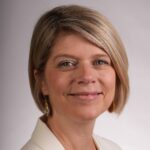
Tracy Mooney

Tracy Mooney
Tracy Mooney is a Métis Nation BC citizen, and her pronouns are she/her. Her ancestors are from the Red River Settlement in Manitoba and her Métis family names are Favell, Mackay, Linklater, and Clark. Tracy was born and raised in Merritt on Nlaka’pamux Territory, and currently lives with her family in West Kelowna on Syilx Territory. She is grateful to the keepers of the lands on which she lives, works, learns, and builds relationships.
Before joining the BCFNJC as a Regional HR Manager, Tracy worked in Human Resources for over twenty years in the health system and spent the last four years of her career advocating for employment equity and improved experiences for Indigenous employees in mainstream healthcare.
Tracy joined BCFNJC in January of 2023 and is excited to support staff through the rapid expansion and growth of the organization. She brings with her a passion for advancing Human Resources, specifically recruitment, retention, and pathways to improve experiences for Indigenous job seekers and employees. She recognizes that a culturally safe workplace, focused on employee wellness will result in improved outcomes for the clients that BCFNJC serves. She is a general member of Chartered Professionals in Human Resources of BC & Yukon (CPHR) and an associate member of AFOA Canada.
Tracy considers herself to be self-reflexive, humble, and a lifelong learner on a journey of personal and professional growth. Outside of work, Tracy values time with her family, time in nature, and reading.
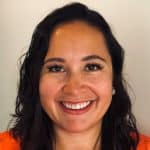
Stephanie Ringham

Stephanie Ringham
Stephanie is a certified Paralegal and the Legal Supports Supervisor for the Indigenous Justice Centres.
Stephanie was born and raised in Kitimat, B.C. and is a member of the Haisla Nation. She moved to the Okanagan in 2003 and is thankful to live on the ancestral and unceded traditional territory of the Syilx Nation.
Stephanie has worked in the legal field since 2005 and obtained her Paralegal Certificate with Capilano University in 2011. She has worked in a variety of different legal fields and is excited to bring her knowledge and experience of the legal industry to the BCFNJC and to be part of the implementation of the First Nations Justice Strategy.
In Stephanie’s spare time, she enjoys spending time with family, reading, and enjoying the many outdoor activities the Okanagan has to offer. She has one daughter that keeps her busy with her own extracurricular activities and together they enjoy learning and exploring their culture and implementing these teachings into their daily lives.
Jeff Shidei
Jeff Shidei
Jeff Shidei’s parents immigrated to Toronto from Japan. Jeff attended York University in Toronto to obtain his undergraduate degree before earning his Bachelor of Laws at the University of Saskatchewan. Jeff has practiced in the areas of civil litigation, property law disputes, municipal law, human rights violations, family law, and child protection during his 13 years in private practice within the city of Kamloops, located on the unceded territory of Tk’emlups te Secwepemc.
Now, living and working on the traditional territory of Lheidli T’enneh, and focusing on providing legal and non-legal services to members of the Indigenous communities within and surrounding Prince George, Jeff is grateful for the opportunity to advance the goals of the BC First Nations Justice Strategy and provide practical assistance and better outcomes for those members dealing with the criminal justice or child protection systems.
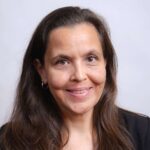
Andrea Hilland, KC (Asits’amniyaak)

Andrea Hilland, KC (Asits’amniyaak)
A member of the Nuxalk Nation and an Assistant Professor at the Peter A. Allard School of Law, Andrea has been an empowering advocate within the Indigenous justice landscape. Professor Hilland has extensive expertise in legal practice and prior to her academic career advocated on behalf of First Nations to assert their rights with respect to environmental issues. She has also advised organizations such as the BC Human Rights Tribunal, the Canadian Bar Association of BC, and the Law Society of BC on Indigenous issues in the context of legal regulation. A former BCFNJC Policy Lawyer, Andrea holds a deep understanding of the work we are advancing around the resurgence and power of Indigenous laws.
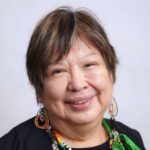
Dr. Judith Sayers (Cloy-e-iis)

Dr. Judith Sayers (Cloy-e-iis)
Dr. Judith Sayers (Cloy-e-iis) is President of the Nuu-chah-nulth Tribal Council and Chancellor of Vancouver Island. She is also an adjunct professor with the Gustavson School of Business and the School of Environmental Studies at the University of Victoria.
Judith has been the Visiting National Aboriginal Economic Development Chair and an Assistant Professor at the Faculty of Business and Law at the University of Victoria and in that role facilitated economic development with indigenous peoples Judith practiced law for 18 years in both BC and Alberta.
Judith served fourteen years as Chief of the Hupacasath First Nation, located in Port Alberni, BC. As Chief of her First Nation, she focused on capacity building and sustainable development.
She is on the board of the BC Achievement Foundation and the BC First Nations Justice Council.
Judith has been inducted into Canadian Council of Aboriginal Business Hall of Fame, has been the recipient of the Bora Laskin Fellowship on Human Rights, a Finalist for the Buffet award for indigenous leadership and twice awarded the Woman of Distinction from the Alberni Chamber of Commerce. She has received the Silver Award from the Canadian Environmental Association for Climate Change and is also a member of the Order of Canada.
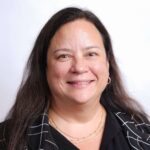
Kory Wilson (Puglid)

Kory Wilson (Puglid)
Kory Wilson (Kwakwaka’wakw), BSc. JD, is the Executive Director of Indigenous Initiatives and Partnerships for British Columbia Institute of Technology. Kory is a member of the BC Law Society and she practiced criminal defense and family law. She is Chair of the World Federation of Colleges and Polytechnics Indigenous Affinity Group. Kory has over 20 years of experience in post-secondary education, community development, and legal profession. Good governance is a specialty and a passion. She serves on several boards from Pearson College, BC Women’s Foundation, Downie Wenjack Fund, Future Skills Canada, to the Genome BC.
A sought-after speaker and strategist on advancing and ‘truth-telling’ about the past and moving forward towards Reconciliation. With a deep commitment to education, both formal and informal, she knows innovative and creative solutions are a must to move Reconciliation into ReconciliACTION. Education and access to knowledge are key to move everyone forward. When people know better, they do better. Diversity is a reality, but inclusion is a choice. Inclusion requires bold and courageous conversations and confidence to ensure systemic change and outside the box solutions. We can and must do better – Canada can and must do better. Together we are stronger
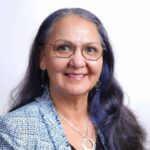
Lydia Hwitsum (Xtli’li’ye)

Lydia Hwitsum (Xtli’li’ye)
Lydia Hwitsum (Xtli’li’ye) is a BCFNJC Director and Alternate Chair for Indigenous Women’s Justice Plan, Youth & Education (Bundle D) and Diversion, Corrections, Community-Based Justice Programming (Bundle G). She was appointed by the First Nations Summit.
Ms. Hwitsum has over 20 years of experience in leadership positions in Indigenous governance in BC and Canada, and recently served a term as Chief of the Cowichan Tribes. She previously served four two-year terms as the elected Chief, and in 2019 was elected to a second term on the First Nations Summit Political Executive. Ms. Hwitsum has been a staunch advocate for Indigenous and human rights, presenting at local, national, and international stages, including at the UN Permanent Forum on the Rights of Indigenous Peoples. She brings to BCFNJC vast experience and a strong commitment to advancing Indigenous rights and justice.
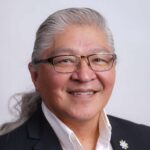
Clifford White (Nees Ma’Outa)

Clifford White (Nees Ma’Outa)
Clifford White (Nees Ma’Outa) is a hereditary leader and a former Chief Councillor of Gitxaała Nation, Clifford has dedicated his life to serving Indigenous people. As an Elder he has played an important role in BC’s First Nations/Indigenous Courts supporting holistic, traditional ways to restore balance and healing. In addition to his involvement as an Elder in the New Westminster First Nations Courts, Clifford is a BC Treaty Commissioner, elected by the First Nations Summit. He is also a Commissioner with BC Housing and a Commissioner with BC Infrastructure Benefits. Clifford brings a wealth of expertise and wisdom with him that will help guide BCFNJC’s implementation of the Justice Strategy.
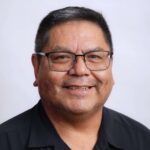
Boyd Peters (Xoyet thet)

Boyd Peters (Xoyet thet)
Boyd Peters, director, Sts’ailes’ Rights and Title Department
Boyd (Xoyet thet) was born and raised in Sts’ailes and has been elected to Council for more than 20 years. He is responsible for looking after Sts’ailes’ Xa’xa Temexw—an expression that conveys the spiritual, physical, and cultural connections that the Sts’ailes people have with the land, water, and resources in their territory.
After Boyd carried out the 1998 community consultation for the Elbow Lake Aboriginal-focused facility in partnership with Correctional Service Canada (CSC), he was hired as the transition coordinator, became executive assistant to the Chief in 2002 and is now the Aboriginal Rights & Title director. Boyd has also been an active member of the Kwìkwèxwelhp Citizens Advisory Committee and was appointed chairperson in 2006.
Boyd is quoted in the document Kwìkwèxwelhp and Sts’ailes, A Historical Journey in Healing Aboriginal Offenders that “a common understanding of our people is that our strength is derived from our culture and spirituality. We are a prosperous First Nation that has developed many innovative made-in-Sts’ailes programs and services and are glad to provide these culturally appropriate services for the Kwikw’te’alex (Elbow Lake Brothers). We recognize that our brothers are vastly over-represented in the prison system and believe that our people have the capacity to help offenders in their healing path. We are open to sharing our cultural and traditional forms of healing for the reintegration of offenders into their home communities. The safety and well-being of all our communities benefit. It is a mutually-beneficial relationship that has gained national and international recognition.”
